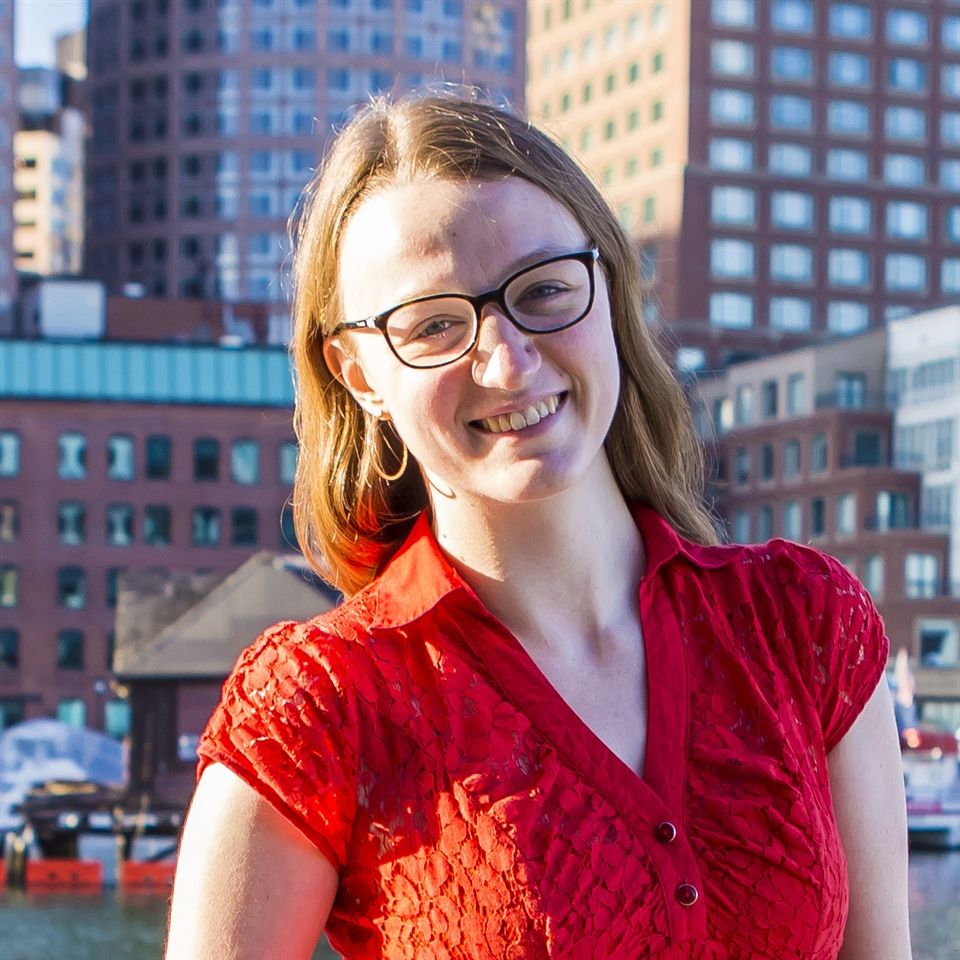Karen Zusi '07
Media Relations Manager
In her earlier years, Karen Zusi dreamed of being a wildlife biologist. During freshman year biology at Sacred Heart with Susan Nelson, Karen did a research project on backyard birds that sparked a lifelong interest in bird watching. She did research on birds while an undergraduate at Villanova University. She has worked as a naturalist at Sherwood Island State Park in Westport, Connecticut, and has volunteered at Yale's Peabody Museum of Natural History. Her master's degree from Frostburg State University in Maryland is in wildlife biology. "I loved the idea that I could study animals for a living," she says.
But as time went on, Karen began to think that, professionally, she also wanted to do something in another area of interest: communications. So she completed a master's program in science journalism at Boston University, and became a science writer. Karen's work, both print and multimedia, has appeared with PRI's Living on Earth, The Scientist, Cell, and various institutional and corporate clients.

In 2016, she began working in communications for the Broad Institute, a major Boston-area biomedical research center where cancer research is one of the top priorities. In her current position as media relations manager, Karen is responsible for communicating to journalists about the institute's work so that they can, in turn, inform the public. She also writes for Broad's website, prepares researchers for talking with media when major findings are about to be announced, and helps plan events such as Broad's public lectures. When a crew from The Boston Globe newspaper visited the Broad Institute earlier this year for a story on finding new uses for old drugs—including treating cancer—Karen made the tour arrangements, took notes for the Globe photographer, and facilitated communication between scientists and journalists.
Karen mentions two Broad initiatives that she thinks are particularly worth noting. One is research into blood biopsies—enabling routine monitoring of patients’ tumors directly from blood samples. "The idea," she says, "is that, since tumors shed pieces of DNA into the bloodstream, we might be able to draw blood rather than subject patients to the standard, invasive, surgical biopsy procedure."
The other initiative is part of Broad's focus on partnering directly with patients. The Metastatic Breast Cancer Project—a crowd sourced, social media driven effort to engage those with metastatic breast cancer as partners in research—has patients directly submit saliva samples and allow access to their tumor samples for genome sequencing. De-identified data from the samples and other clinical information are released and shared across the global research community to enable scientific understanding of the disease and develop new treatment strategies.
"A lot of people are dedicating their careers to understanding cancer biology and, ultimately, finding a cure." Karen says. "Helping the public understand that work is extremely gratifying."


